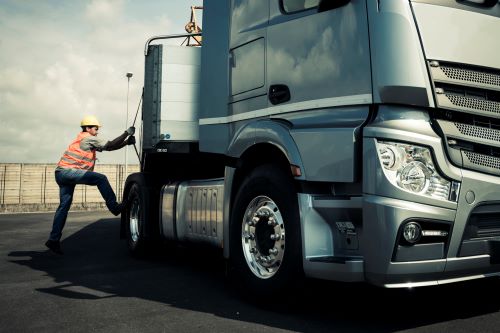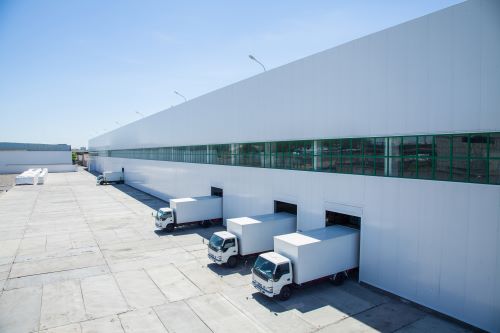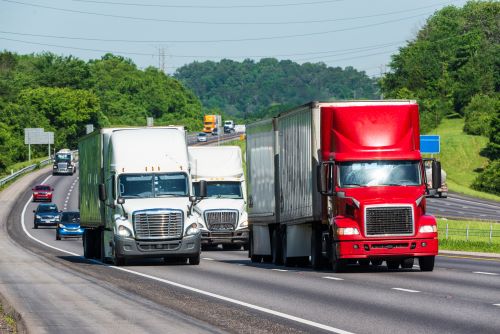Logistics companies face many challenges due to the increasing public awareness of their environmental impact and contribution to climate change, as well as the creation of new regulations. One recent ruling was the IMO 2020, which restricts the level of sulfur emissions from ships and has also increased the price of fuel for both ships and trucks.
The combination of new government regulations, the lack of automation, and increased public demand for accountability are forcing the industry to look for sustainable logistics and supply chain options.
Despite the careful balancing act needed to maintain success, there are tools and methods the logistics industry can integrate to improve sustainability among their processes, help preserve the environment, and remain profitable.
Does reducing emissions equal reduced profits?

The general belief among most companies with logistics operations is that shifting to sustainable solutions is an expensive venture.
But in reality that’s not always the case. You can comply with the sustainability guidelines and maintain a high profit margin – these two don’t have to be mutually exclusive.
Although the process of sustainable logistics is straightforward in terminology, its application can get complicated, especially when it comes to global supply chains. But with the use of advanced planning tools such as route optimization software and real-time maps, it’s possible to reduce CO2 emissions and comply with government regulations – all without reducing your profits.
Let’s now take a look at how this works.
How does freight logistics management impact CO2 emissions?
Transport is second only to the energy sector in terms of CO2 emissions and greenhouse gas (GHG) production. That means it’s responsible for one-fifth of the global CO2 emissions.
Furthermore, the industry’s contribution to CO2 emissions has increased by 1.9% annually since 2000 – most of which can be attributed to the rise of globalization and increased demand for consumer goods.
Even though we likely can’t expect consumer demand to increase any time soon, we can begin to shift our thinking. We can focus on solving the root cause of the problem rather than reducing a symptom of changing times – precisely why we need to look at the foundation of logistics systems as a whole.

By implementing a sustainable logistics and supply chain, we can reduce CO2 emissions with the following methods:
- Reduce the number of unnecessary trips by optimizing truck loading.
- Follow routes that have the least stops, thus making the engine run at the highest efficiency.
- Shift to clean energy and use battery-powered electric trucks for urban areas.
- Use data to improve inefficient systems within the supply chain.
- Detail and optimize route planning with real-time data from carbon footprints.
Although sustainable logistics management is only one aspect that reduces CO2 emissions, it can make a big enough change when implemented correctly and be done in a way that’s still profitable for logistics companies.
The benefits of sustainable logistics

Thanks to the advancing technology, there are now different sustainable logistics and supply chain management tools available. These remove the difficult choice between making profits and saving the planet. Which means you really can have it all!
Here are some of the top benefits of sustainable logistics and why you’ll want to consider integrating these types of processes and tools into your logistics business.
1. Helps you win bids with logistics tenders
More and more logistics tenders now include demand for emissions data. So companies that pollute less have higher chances to win contracts.
Other factors that can help you win freight tenders include:
- Having a well-designed digital logistics management system,
- Developing a cost-efficient subcontractor network, and
- Integrating reliable time calculations and GPS positioning data of the cargo.
2. Improves compliance with government guidelines
Various stakeholders (municipalities, citizens, and governments) are increasingly asking for more sustainable mobility solutions. So the earlier freight companies get on board, the better for them.
Another benefit is that using sustainable logistics management systems and lowering your carbon footprint increases customer affinity for your brand and wins you publicity. When you have a solution that benefits municipalities, citizens, stakeholders, and the environment, how could that not be your go-to solution?
3. Smart logistical planning offers a high-profit margin
The importance of sustainable logistics is that it gives you useful features such as live tracking of freight, which helps you simultaneously identify service disruptions and improve systems for the future.
The more efficient your system is, the higher your profit margins will be. For example, using green vehicles reduces the cost of fuel, especially for companies operating in regions where diesel prices are higher than average.
In fact, research shows that as the prices of electrical batteries drop, electric heavy-duty vehicles will cost 25-30% less to own, operate, and maintain than diesel trucks by 2030.
With companies such as Rivian, Ford, and BYD (who have delivered over 100 battery-electric trucks just to the US) making strides in the electric truck production race, you can now be both environmentally conscious and profitable with the right tools and logistics support.
The key elements of profitable and sustainable freight logistics
Balancing profits and environmental impact takes intentionality, consistency, and planning. Here are three key elements of sustainable logistics and supply chain that companies should consider in order to achieve this balance.
1. Delivery route optimization
A critical aspect of sustainable logistics and supply chain is to make sure that there are no empty runs. For that to happen, you need to optimize driver routes and loads.
The traffic on your delivery route also impacts the CO2 emissions, so you need to plan routes using traffic data. Tools such as PTV Map & Guide use internet cloud services to offer you fleet scheduling and route planning solutions with incredible real-time accuracy.

2. Integrate cost-saving methods
High delivery costs significantly reduce the profit margins for freight and logistics companies. But there’s a rather simple solution to fix that – use mileage calculators to properly calculate costs and mitigate losses.
And not only that, but using sustainable logistics management also saves you from paying future fines for running non-energy-efficient trucks.
Speaking of the future, a long-term solution for saving costs is to shift to electric trucks. There are many benefits for making this switch such as:
- You can have zero-emission urban freight since these trucks don’t use fuel (50% less GHG emissions).
- Research shows that electric trucks are at least 20% less expensive than diesel trucks for urban driving.
3. Use a route optimization software
The more diesel trucks there are on the roads, the more CO2 emission there’ll be.
To reduce your GHG emissions, use route optimization software to plan out your truck routes by monitoring the traffic network in real-time. Smart software like this one uses simulations to enhance customer satisfaction, driver safety, and compliance with CO2 emission guidelines.
For example, PTV’s Route Optimizer has been used for food delivery logistics and has generated great results in terms of reducing emission and increasing profit margins. If you’re interested in learning more, we’ve also got a webinar with all the data on this experiment.
Use sustainable logistics management to reduce CO2 emissions and stay profitable

Tsunamis, disastrous hurricanes, uncontrollable wildfires, and other natural calamities are on the rise due to global warming and climate change. And CO2 emission from trucks, ships and factories is a major contributor to that. Now that governments are taking strong actions to slow climate change down, freight companies need to comply with new guidelines that set acceptable emission levels from their fleet.
And this is just the beginning. We’re moving towards a much greener world where renewable energy and efficient systems aren’t just an option, they’re a regular part of global logistics systems. Doing so not only reduces your carbon footprint but also increases your profitability by enhancing the efficiency of your logistics management system and strengthening your supply chain.

Adriana, that was a fascinating read! Beyond becoming green, the significance of sustainability in a supply chain cannot be overstated. A sustainable supply chain also contributes to increased productivity while saving money. You can boost the efficiency of buildings, transportation, and equipment while saving money by employing sustainable practices and resources.
Thankful much for sharing the information regarding automated courier software
Hey Adriana, I have just read your blog; really great thoughts on this topic, the content you provide for your audience is noteworthy. Not to mention, handling demanding topics like Why Sustainable Logistics Solutions Reduce Emissions & Improve Profitability itself is pretty amazing.
Considering, that I am also writing about a few interesting topics in this industry, I’ve got a great idea for How Sustainable Logistics is Important for Latest Supply Chain?, which surely do well on your Blog.
https://blog.boxonlogistics.com/how-sustainable-logistics-is-important-for-latest-supply-chain/#more